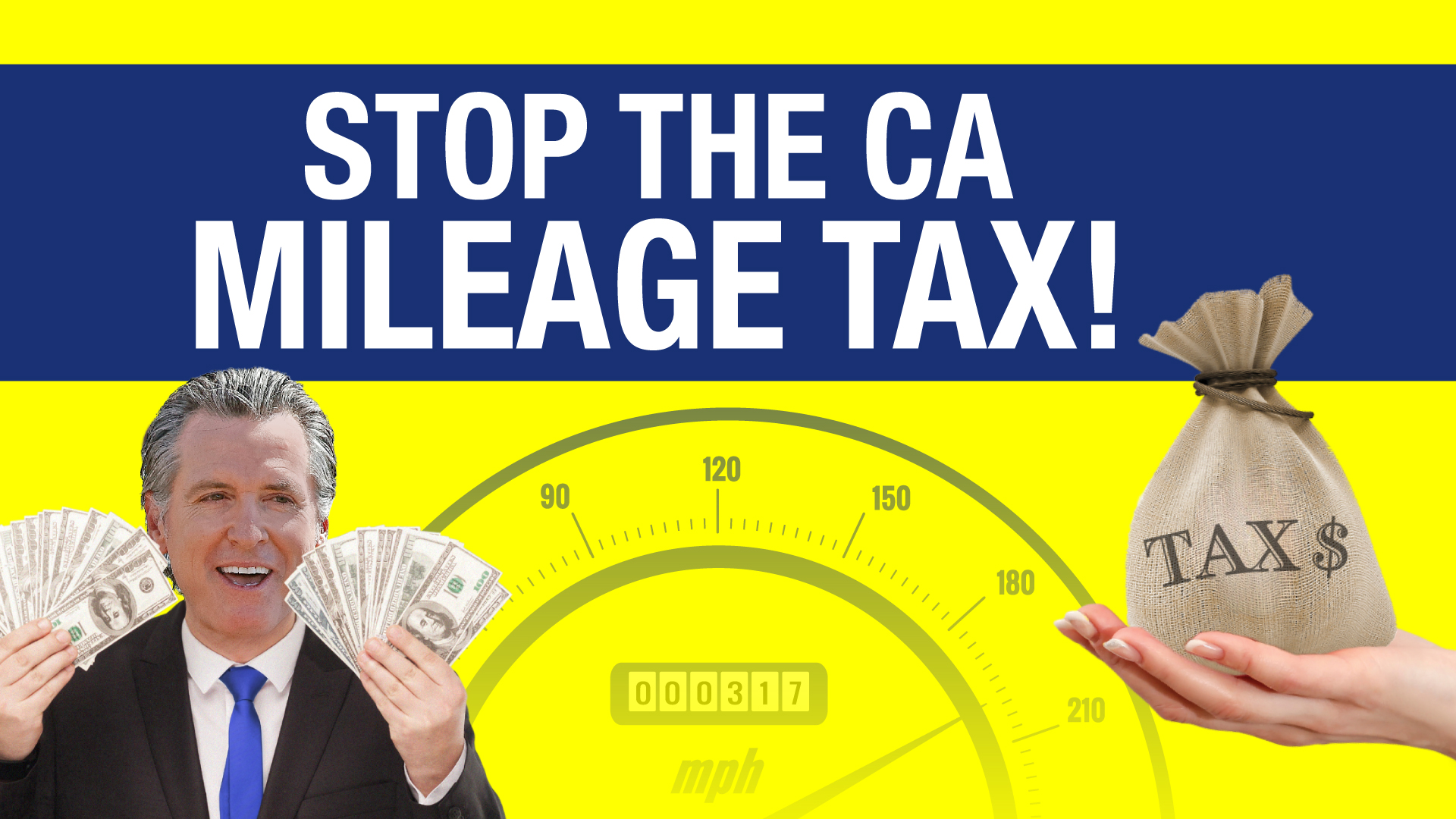.jpg)
Image Credit:
Canva / Gage Skidmore
If you thought homelessness in California was already at a crisis point, it could get a whole lot worse under California's Proposition 1 — a ballot measure being backed by Governor Gavin Newsom (D) for the March 2024 statewide ballot. While Newsom calls the changes in Prop 1 his “Housing First” plan, Reform California is leading a statewide campaign to defeat Prop 1 and has dubbed it the California “Homelessness Forever” initiative.
“The media is not holding Newsom accountable for his failures and the grave damage that ‘Housing First’ has had on California — and they will no doubt give favorable coverage on this misguided initiative,” said Carl DeMaio, chairman of Reform California.
DeMaio says Newsom’s Prop 1would “fund failure” at the expense of billions in taxpayer dollars — and would actually divert much-needed funding from programs that would solve homelessness.
Gavin Newsom’s “Homelessness Forever” Proposition 1 Initiative:
Specifically, Newsom’s Prop 1 on the March 2024 ballot would:
No surprise, but the same rich politically-connected developers who are receiving billions in taxpayer subsidies are kicking back massive campaign contributions to the politicians who are funding these projects.
DeMaio points out that California has already spent over $25 billion since 2018 on homeless programs in recent years — just to see the state’s homeless population increase by more than 30% during the same period according to the U.S. Department of Housing and Urban Development. In fact, California has so failed on the issue of homelessness that it now has a full one-third of all homeless in the US — despite the fact that the state represents roughly 12% of the US population.
“No one else seems willing to oppose Newsom’s misguided Prop 1, so that leaves Reform California with no choice but to lead the charge and educate voters that there is a far better way to tackle the issue,” DeMaio says.
What is Housing First, and Why is it a Failure?
Newsom’s failed “Housing First” proposals actually began in San Francisco, San Diego, and Los Angeles in 2008 — but in 2016, Senate Bill 1380 made it the law of the entire state by requiring all homeless housing programs to adopt the Housing First model.
“Housing First is a policy that says we should should not enforce rules on homeless people that prohibit panhandling, public intoxication, defecation, theft, illegal encampments, or trespassing - and that we should never expect a homeless person to follow rules like no drug use or required mental health therapy,” DeMaio explains.
“Even worse, Housing First proposes to cut funding for shelter beds and transitory housing units in favor of ‘permanent supportive housing’ - which says we should build every homeless person a full condo unit with amenities and hand over the keys with an expectation that taxpayers will continue to fund that unit permanently,” DeMaio explained.
California state regulations now ban funding from being given to homeless programs if they dare try to enforce rules like no drug use or required mental health treatment. To get state funding, homeless shelters must agree to not enforce any rules that require a homeless person seek or accept treatment.
But according to a study by the American Journal of Community Psychology, 75% of chronically homeless individuals have substance abuse or severe mental illness.
Proponents of Housing First claim that if you provide a homeless person with a free permanent housing unit, they will then have the ability to get off drugs and reclaim their mental health.
But numerous studies have shown this lofty claim by Housing First advocates is false. In fact, studies by the Archives of General Psychiatry and U.S. Department of Health and Human Services found that Housing First had no effect on treating or improving substance abuse and mental health issues among the chronically homeless.
“Simply handing over keys to an expensive housing unit will not change the dysfunction and disease inside a person that made them homeless in the first place,” DeMaio warns.
“Housing First has failed on every level - wasting taxpayer funds and spiking homelessness across our state,” DeMaio concludes.
“Despite the failure of Housing First and its extremely high cost, California politicians continue to double down and spend more and more of your money on it - so there must be another reason why they are doing it,” explains DeMaio.
A Better Plan: People First
DeMaio says a better policy must be implemented that takes into account different drivers of homelessness and strategically positions an array of programs to deal with those drivers.
DeMaio explains that there are different classes of homeless individuals: economically displaced and dysfunctional or chronically homeless.
“Economically displaced homeless individuals are those that are down on their luck — they couldn’t meet rent, they lost their job — and they just need a small helping hand to get on their feet,” explains DeMaio.
“But dysfunctional and chronically homeless individuals are those that can’t hold down a job, can never meet their bills, and can’t function in society for a prolonged period of time — and that’s overwhelmingly due to addiction and mental health disorders,” he continued.
DeMaio proposes an alternative plan to Housing First that he labels the “People First” plan. Here’s what it requires:
“We need tough-love to solve the homeless crisis in California, and we cannot build our way out of this problem – we must instead focus on transforming the lives of each homeless person,” said DeMaio. “Our philosophy must not be ‘Housing First’ it must be ‘People First.’”
DeMaio says the only way to make progress on homelessness in California is to soundly defeat Newsom’s Prop 1 ballot measure proposal in the March 2024 election.
Learn More and Help Stop Prop 1: CleanUpOurStreets.org


